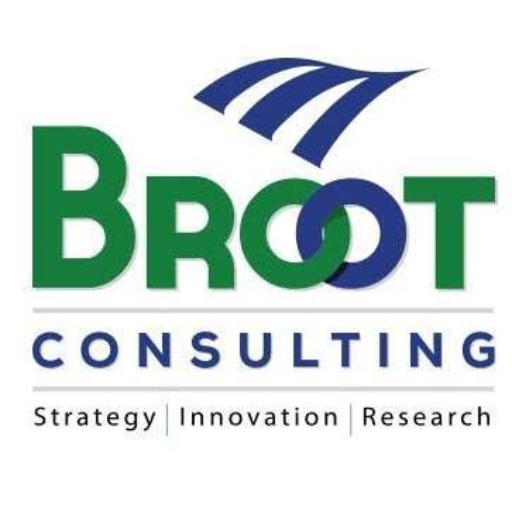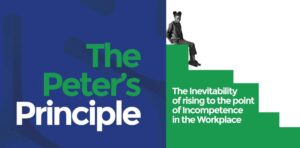Learning and innovation go hand in hand. The arrogance of success is to think that what you did yesterday will be sufficient for tomorrow – William Pollard
The news came unexpectedly, after 178years of achievement and success, Thomas Cook that once stood like the “Rock of Gibraltar” is washed into the sand of history. At its heights, Thomas Cook was ubiquitous; it was the favourite of holidaymakers, it was a big corporation with 19million annual customers, however at the time of its demise, it had about $2.1billion in debt, got 600,000 holidays makers stranded across the globe and approximately 22,000 employees thrown out of jobs.
I recall the first time of travelling to England, it was Thomas Cook traveller’s cheque, and when I needed to convert some cash to pounds, Thomas Cook counter at the Airport came to the rescue as well. Their cubicles and signs adorned the Airport, and outside of the Airport most of the places I turned to, I was welcomed by Thomas Cook brand. Unfortunately, history repeats itself; the company is now among fallen giants. They say that nothing lasts forever and a significant cause of failure in any human endeavours is usually poor choices and poor attitudes.
THOMAS COOK THE BEGINNING OF THE END
Thomas Cook Group had a humble beginning; it was established in 1841 by Mr Thomas Cook, a Baptist minister. He responded to the opportunities presented by the railway revolution and decided to build a company that minister to the needs of holidaymakers and in the process spread joy and wealth around the world through vacation travel. Thomas Cook offered all-inclusive holidays deals which included flights, accommodations, feeding and transport to and from the Airport. At its time, the business model was great and worked well. However, the advent of the digital age altered present better opportunities and experience to its customers. The inability of Thomas Cook to look beyond what worked in the past was the beginning of its fall. How well should you continue to hang on to what worked in the past and what is working currently?
Thomas Cook collapsed due to incompetence and outdated business model. The company failed to move with the trends in the industry. Every business must face the reality of continuous innovation and disruption and how they respond to it determines what happens next. Many people fall into the trap of being comfortable with a working business model; therefore little consideration is given to the need to reinvent and renew. Thomas Cook has been doing it same way for 175years but hanging on to the same practice in a highly dynamic and ever-changing operating environment is an invitation to doom. The reality of our world regarding potential disruption is that every business is sitting on its keg of gunpowder. So how could you guard against your business model becoming obsolete? What is your long-standing, implicit, beliefs and strategy about how to stand firm and continue to make money, should your current practices be rapidly displaced, disrupted and even destroyed?
THE WAY FORWARD
Move beyond the noise of Product and service innovation: Business model innovation is a rare competence among many business executives; therefore, it is not surprising that most CEOs get fixated on product and service innovation whereas the critical success factor in thriving and maintaining relevance in the digital age is continuing oiling of the business model. Ever wonder why at a particular age we all have to do annual check-ups? We do so to avoid any mishaps or eventualities. When this practice is applied to organisations, it will help its growth, stability and longevity. Your focus should move beyond the traditional product and service innovation to business model innovation.
Challenge your assumptions; Unlock unique opportunities: the need for organisations to movebeyond the current compelling value propositions cannot be over-emphasised. To stay relevant, ensure you constantly challenge all your assumptions even when you think that the current system still works. You must have heard of the phrase that no need to “reinvent the wheel” or that “if it isn’t broken, don’t fix it”. The adages as good as they sound, maybe an albatross to the discovery of better and unique opportunities for growth and prosperity. The business model needs to be continuously updated, and if you wait for it to get broken before you fix it, then that may be a wait too long. It is safer to assume that your business model no longer works, even if they currently do than to expect it will ever work. What assumptions do you need to challenge constantly? Stop nurturing what no longer works; there is no amount of time and resources spent on the sunk cost that will make it give a different outcome.
Don’t trade your core competency for glittering attractions: you can’t be everything to all people. Some things may look glamorous and enticing; however, not all that is glamourous should be desirable in business. Once you are successful in business, there will be many tempting opportunities to diversify and invest in new businesses for which you may have inadequate knowledge, embracing such may create a strategic misalignment. Don’t go into them if it will make you lose sight of your core value propositions. Thomas Cook is a vacation company; however, in 2003, the company made a strategic decision to acquire Condor, a former subsidiary of Lufthansa. While running an airline is glamorous, nurturing it to sustainability can be bone wrecking. John Strickland observed that by acquiring the airline operating licenses, Thomas Cook was putting herself into running two complicated businesses: travel agency and airline. Thomas Cook has a troublesome business model; they see big peaks in the summer and troughs in the winter. Strickland said If you own your planes and don’t have passengers during quieter months, that becomes a big challenge.”

Monitor the trends: it was in the year 1942 that Joseph Schumpeter coined the phrase creative destruction. He used the phrase to argue that new technologies will be birthed to disrupt old industries and practices. He opined, any business that failed to adapt will be destroyed, and those that do will thrive. Thomas Cook refused to see that the impending doom created by the digital economy. Today, the rest is history.
Choose your focus wisely: many businesses have failed due to poor strategic choice generally associated with new growth. Most times the pursuit of the new growth takes them miles away from their core businesses, while new growth in an unrelated market may be attractive, it must be done with caution least it pulls down the entire organisation. On Monday, September 23, 2019, Condor approached the German Government for a bailout without which it may go the way of its parent company (Thomas Cook).
You must make a distinction between your desires: do you desire incremental innovation to help grow your current line of business or a transformative change that explore new possibilities that have the potential to disrupt your business model? Combining the two is very difficult for many CEOs, and it is only an ambidextrous organisation that excels at improving their established business model and inventing tomorrow’s growth engines. As Alexander Osterwalder of Strategyzer noted: Real transformative growth could not take place inside corporations today with the organisational structures of the past that focus mainly on excellence in execution and incremental growth.
Regularly examine the blind spot: every organisation, just like every vehicle, has blind spots. While a blind spot may be natural, you can prevent it from causing a mishap. What are the blind spots in your business? Unseen competition from non-traditional players? Business ideas from employees that you routinely dismissed because the idea doesn’t fit within your expectations and experience? Alternatively, could it be hoarding your vision and not subjecting your ideas to scrutiny? Alternatively, encouraging a culture of nepotism and mediocrity? To avoid blindside, you need to be very observant and be brutally sincere to yourself. Ensure you understand what is changing and how it could impact your offerings.

Image Credit: Getty image
Look at the Big Picture: if your organisation fails, what pains will it be causing and to whom will it be causing the pains? Put yourself in their shoes” Think of families that may disintegrate as a result of your wrong choices that led to the collapse of the business, think about companies that may die alongside yours, the vendors, suppliers, what about the local communities. If you critically empathise and walk in the shoes of those who may be the victims of your bad decisions and poor choices, then you would be compelled to reinvent your business responsively an responsibly.





This Post Has 3 Comments
It is quite unfortunate that companies who don’t adapt die, and as always they should be constantly renovating and creating. We got to hear about Kodak had developed digital photography years ago, but put it on the back burner collecting dust as they had dogmatically believed that prints and processing photos will always win. Blockbuster chain had been approached by Netflix to have it’s service as an arm of the big company but they refused, because their business model was seen as ideal. Vodafone came to Nigeria and did a feasibility study allegedly fail to see the potential in growth because of the lack of electric infrastructure, majority of people did not have bank accounts, and there were no telephone lines. Bill Gates was said to have seen the potential of the mouse and it’s use in a graphical computer interphase and he incorporated it into Microsoft Windows 3.1. The story goes on and on, the email has changed Posting Mails. People no longer use land lines, and what is coming is even worst as the Industrial Revolution got rid of the Luddites, manufacturing jobs and the Agricultural Revolution got rid of large amount of population engaging in farm work. All is small to the major disruptor, AI and this will swept away Information and high end jobs, like Accounting, Engineering, Medicine, Teaching, etc.
This is thought provoking.
This is an eye opener to me and my business.
Most business owners feel they know it all and in some cases employees are seen as a mare number and not a human being who can make some appreciable contributions.
Thanks.